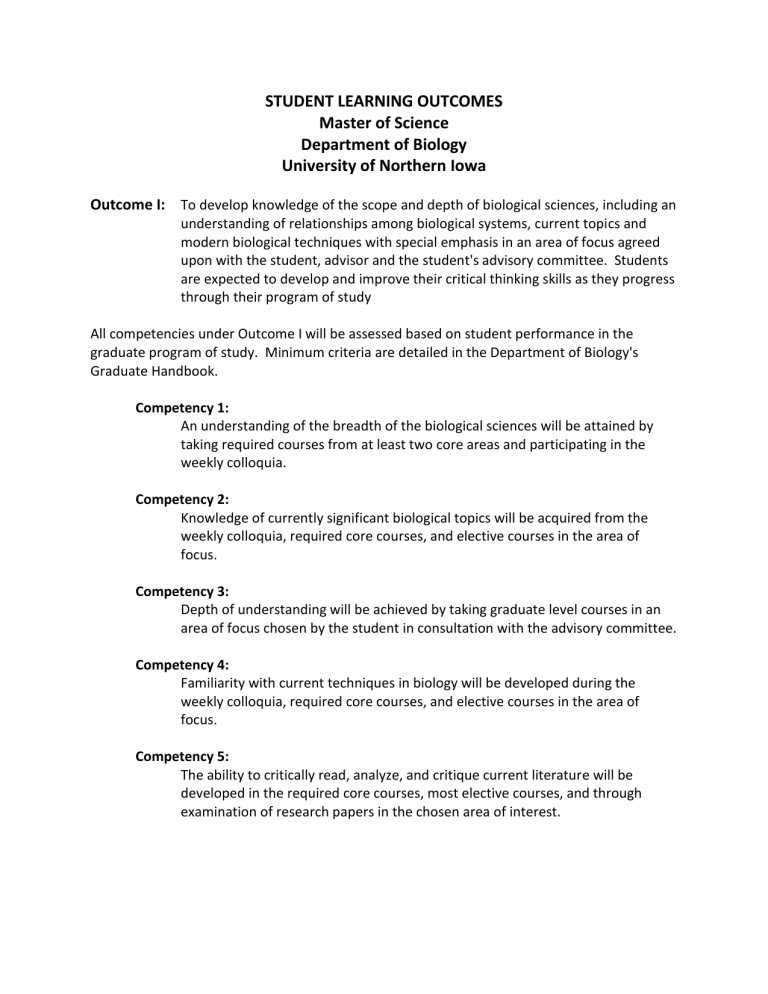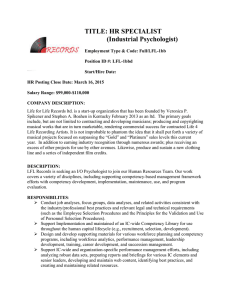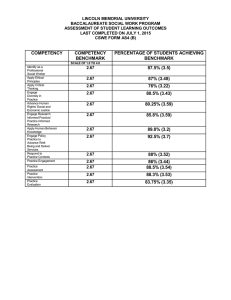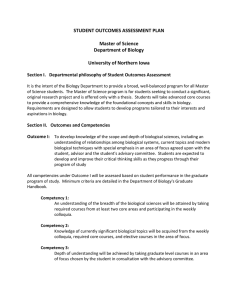STUDENT LEARNING OUTCOMES Master of Science Department of Biology University of Northern Iowa

STUDENT LEARNING OUTCOMES
Master of Science
Department of Biology
University of Northern Iowa
Outcome I:
To develop knowledge of the scope and depth of biological sciences, including an understanding of relationships among biological systems, current topics and modern biological techniques with special emphasis in an area of focus agreed upon with the student, advisor and the student's advisory committee. Students are expected to develop and improve their critical thinking skills as they progress through their program of study
All competencies under Outcome I will be assessed based on student performance in the graduate program of study. Minimum criteria are detailed in the Department of Biology's
Graduate Handbook.
Competency 1:
An understanding of the breadth of the biological sciences will be attained by taking required courses from at least two core areas and participating in the weekly colloquia.
Competency 2:
Knowledge of currently significant biological topics will be acquired from the weekly colloquia, required core courses, and elective courses in the area of focus.
Competency 3:
Depth of understanding will be achieved by taking graduate level courses in an area of focus chosen by the student in consultation with the advisory committee.
Competency 4:
Familiarity with current techniques in biology will be developed during the weekly colloquia, required core courses, and elective courses in the area of focus.
Competency 5:
The ability to critically read, analyze, and critique current literature will be developed in the required core courses, most elective courses, and through examination of research papers in the chosen area of interest.
Outcome II:
Be able to identify and develop a proposal for a significant, original research project.
All competencies under Outcome II will be assessed by the student's advisory committee based on a written research proposal as outlined in the Department of Biology's Graduate Handbook.
To achieve the competencies listed below, the student will work in consultation with their advisor as well as members of the advisory committee and will utilize the information received in their core and elective courses as needed.
Competency 1:
Evaluation of the appropriate scientific literature for the proposed project.
Competency 2:
The ability to identify and define hypotheses that need to be tested.
Competency 3:
The ability to identify appropriate scientific methods to test the proposed hypothesis.
Competency 4:
The ability to develop specific experimental designs and statistical analyses suitable to test the proposed hypothesis.
Competency 5:
To understand how to ascertain necessary resources to carry out the proposed research project (facilities, schedule and budget).
Competency 6:
The ability to write in a style and format suitable for scientific proposals.
Competency 7:
The ability to prepare and present an oral scientific research proposal.






